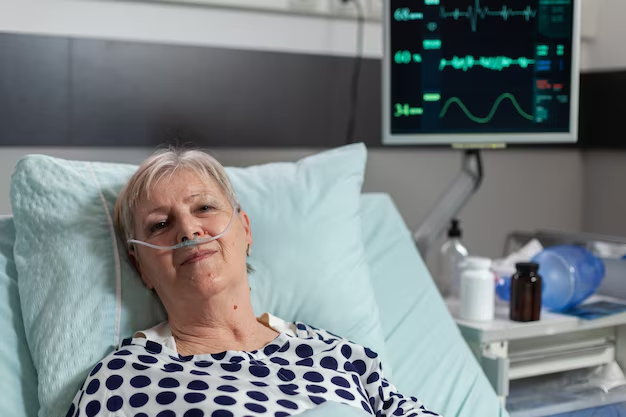Can Medicare Cover the Cost of a Portable Oxygen Concentrator?
Navigating health care options when you're in need of medical equipment can be daunting. One common question is whether Medicare will cover a portable oxygen concentrator. Respiratory health is crucial, and those who require oxygen therapy often need flexibility and mobility. A portable oxygen concentrator can provide the freedom to live life on your terms, but it’s essential to know how the costs are covered.
Understanding Medicare Coverage
Medicare generally offers coverage for Durable Medical Equipment (DME), and oxygen supplies fall under this category. However, the type of coverage can vary based on the specific needs and circumstances of the individual. Traditional Medicare typically covers oxygen equipment and supplies under Part B, but portable oxygen concentrators are in a bit of a gray area.
Medicare Part B Coverage: This part of Medicare covers DME if the equipment is deemed medically necessary by your healthcare provider and supplied by a Medicare-approved DME supplier.
Type of Oxygen Equipment: While Medicare may cover traditional oxygen equipment like a home oxygen concentrator, coverage for portable concentrators can be more limited. Medicare typically requires that equipment provided to patients must demonstrate cost-effectiveness and medical necessity, and portable oxygen concentrators can often be more expensive than other options.
Prior Authorization: Some types of equipment may require prior authorization to be covered, meaning you and your healthcare provider must demonstrate the specific need for the portable device over a stationary one.
Exploring Additional Financial Assistance
If Medicare doesn't cover the device, or if your copayments are prohibitive, you might want to explore additional avenues for financial support. There are several programs and financial strategies available outside of market mechanisms that can help reduce out-of-pocket expenses.
Medicaid: If you qualify, Medicaid may offer more extensive coverage than Medicare for DME, including portable oxygen concentrators.
Nonprofit Organizations: Groups such as the American Lung Association and the Foundation for Airway Health sometimes offer financial aid or grants specifically for medical equipment.
Manufacturer Assistance Programs: Some manufacturers offer patient assistance programs or financing options to make their products more affordable for those who need them.
Creative Financial Solutions
Beyond grants and nonprofit aid, consider exploring other financial solutions designed to ease the burden of healthcare expenses. Options such as medical credit cards, low-interest personal loans, and debt relief strategies may provide the flexibility needed to acquire the necessary medical equipment.
Medical Credit Cards: These cards are designed specifically to spread the cost of medical expenses over time. Check the terms to ensure the interest rates remain manageable.
Personal Loans: Many financial institutions offer personal loans with flexible repayment terms, which can be used for medical equipment purchases.
Debt Relief Options: If medical bills have piled up, look into debt relief options. These strategies can help consolidate or reduce debt, easing financial stress.
Ensuring you have the proper support system in place means not only leading a healthier life but also reducing stress associated with medical financing. By understanding your Medicare benefits and looking into supplementary financial resources, obtaining a portable oxygen concentrator becomes a more approachable goal.
Financial Assistance Cheat Sheet
- 📋 Medicaid: State-specific support for those who qualify
- ❤️ Nonprofit Aid: Grants and support from organizations like the American Lung Association
- 🏭 Manufacturer Discounts: Patient assistance from oxygen concentrator manufacturers
- 💳 Medical Credit Cards: Special cards to manage medical expenses
- 💰 Personal Loans: Borrowing money with structured repayment
- 🔄 Debt Relief: Consolidating or negotiating medical debt
Each of these options provides a layer of financial security, empowering you to make informed decisions for your healthcare needs without compromising financial stability.

Related Topics
- a Medical Provider That Accepts Medicare Assignment Must
- a Medical Provider That Accepts Medicare Assignment Must Quizlet
- a Medicare Patient Received Treatment That Isn't Covered By Medicare
- a Medicare Patient Receives Treatment That Isn't Covered By Medicare
- a Medicare Supplement Basic Benefit Is Quizlet
- a Medicare Supplement Companies
- a Medicare Supplement Policy Is Quizlet
- a Medicare Supplement Policy Must Not Contain Benefits Which
- a Patient Received Treatment In August Medicare
- Am I Eligible For Medicare
